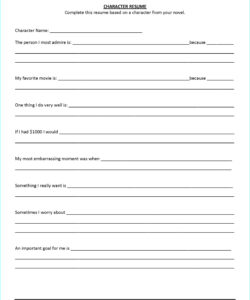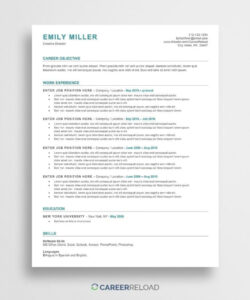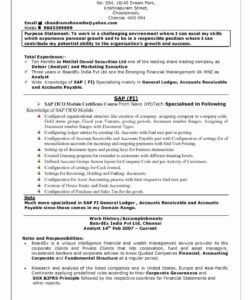Studying abroad is an excellent way to gain new experiences, learn new languages, and broaden your horizons. It can also be a great way to enhance your resume and make yourself more attractive to potential employers. In this article, we will discuss how to include study abroad on your resume and make the most of your international experience.
First, it is important to understand that study abroad experiences should be included in the education section of your resume. This section should be located near the top of your resume, just below your contact information and professional summary. When listing your study abroad experience, be sure to include the name of the program, the dates you attended, and the location of the program.
How to Highlight Your Study Abroad Experience
When including your study abroad experience on your resume, it is important to highlight the skills and experiences you gained while abroad. This can include language skills, cross-cultural communication skills, adaptability, and independence. You can also highlight any academic achievements or research projects you completed while abroad.
One way to highlight your study abroad experience is to include a separate section on your resume that focuses specifically on your international experience. This section can include information about the program you attended, the courses you took, and any extracurricular activities you participated in while abroad.
Another way to highlight your study abroad experience is to include it in your professional summary or objective statement. This can help to demonstrate your global perspective and your ability to work in diverse environments.
How to Describe Your Study Abroad Experience
When describing your study abroad experience on your resume, it is important to use action verbs and specific examples to demonstrate the skills and experiences you gained while abroad. For example, instead of simply stating that you studied abroad in Spain, you could say:
“Studied abroad in Spain for six months, where I developed proficiency in Spanish language and culture through intensive coursework and immersion in local communities.”
When describing your study abroad experience, be sure to focus on the skills and experiences that are most relevant to the job you are applying for. For example, if you are applying for a job that requires cross-cultural communication skills, you might want to highlight your experience working with people from different cultures while abroad.
Conclusion
Studying abroad is an excellent way to gain new experiences, learn new languages, and broaden your horizons. By including your study abroad experience on your resume, you can make yourself more attractive to potential employers and demonstrate your global perspective and cross-cultural communication skills. Remember to highlight the skills and experiences you gained while abroad, and use specific examples to demonstrate your proficiency.
FAQ
How do I list study abroad on my resume?
When listing your study abroad experience on your resume, be sure to include the name of the program, the dates you attended, and the location of the program. You should also highlight the skills and experiences you gained while abroad, such as language skills, cross-cultural communication skills, adaptability, and independence.
Where do I put study abroad on my resume?
Your study abroad experience should be included in the education section of your resume, which should be located near the top of your resume, just below your contact information and professional summary.
How do I describe my study abroad experience on my resume?
When describing your study abroad experience on your resume, be sure to use action verbs and specific examples to demonstrate the skills and experiences you gained while abroad. Focus on the skills and experiences that are most relevant to the job you are applying for.


